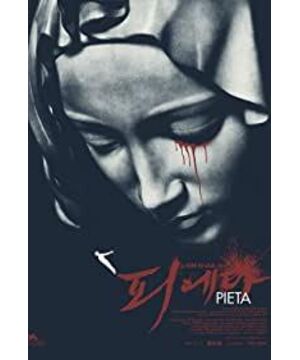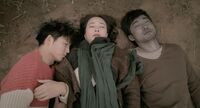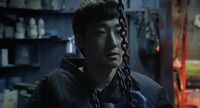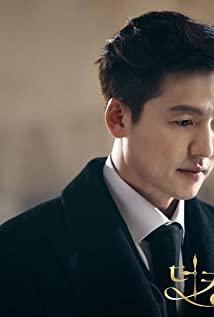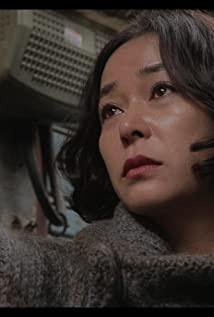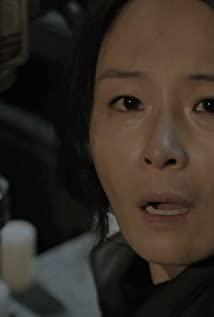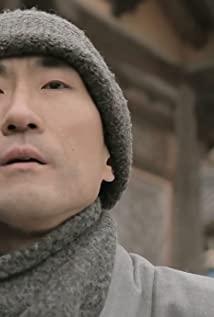#WednesdayMovie# The 10th issue of "Spring, Summer, Autumn, Winter and Spring" "Saint"
Recommended star: Samsung
Key words: crime; punishment; intention
Kim Ki-duk died, otherwise it's really hard to write about him, his films are unique, but hard to describe. Although it is incomplete, it is shocking. This shock does not come from the plot or visual spectacle, but a presentation, a presentation of crime and punishment. I mainly talk about two films, "Spring, Summer, Autumn, Winter and Another Spring" and "Saint", two representative works in a sense.
Kim Ki-duk is not from the industry. Before making movies, he was a worker, so the stories he told and his photography techniques were not very conventional, many of them were ugly, gray, and sharp. Moreover, when watching, the theme you want to express is easily overshadowed by the tangled relationship between men and women, and strange love stories. But if that's all, it won't be loved by Eastern and Western audiences (except maybe Korea!).
crime
Whether human beings are born with sin, I don't know. This sin is not a sin defined by law, but a sin that violates natural ethics. Among them, Kim Ki-duk's favorite performance is the sin of desire. This desire is mainly reflected in the word "possession".
In the film "Spring", in the links of summer and autumn, people's desires - possession, possession of the body, and possession of ideas are expressed. In a lonely temple, space can separate them from the outside world, so two people can only have each other. But in the outside world, there is no tangible thing that can block the temptation. So no matter how persistent, it is just an obsession and cannot be peaceful.
In the Holy, sin is more direct. I think this is due to the author's choice. This kind of broken circle is not something ordinary people can imagine. They are the most marginalized group, the most overlooked group. Whether it is a debt collector or a debtor, there are defects in their lives, so there is a reason for the injury.
punish
There are many sins in life for which there is no stipulation of punishment, but the punishment of consequences is bound to exist. This is the law of nature, there are no exceptions. These two works, whether from an eastern perspective or a western perspective, can be understood by everyone, because crime and punishment must be faced by all human beings. And Jin has always acted as a bystander, showing it to everyone calmly and unbiased.
The little monk in "Spring" ties small animals with stones just for fun. When the old monk saw it, he didn't accuse him on the spot, but after he fell asleep, he tied a stone to him to let him experience the feeling of being on a boulder. Even teachers and fathers can only do this at most. But when people grow up, their inner desires can no longer be suppressed, and they can't listen to the teachings of others. The boulder he had placed on himself could no longer be felt.
In "Holy", the mother has an extremely strong hatred for the death of her child, and she wants to completely destroy the demon that maimed her child. But the reason why the devil became a devil is because of the malice given to him by the world. In the end, the mother destroyed the demon, but also sympathized with the demon, but this road cannot be turned back, so both of them accepted the punishment with peace of mind.
meaning
There are many symbols in Jin's works, some are superficial and some are internal. In "Spring", there is a drifting Buddhist temple in a quiet lake, and an empty door stands on the bank. Both limited and infinite. In the temple, one old and one young, work at sunrise and rest at sunset. The cycle of spring, summer, autumn and winter is like life. Stones in childhood, imprisonment in middle age, and cultivation in old age are all images. Can make people feel intuitive.
And these images have also experienced changes from tangible to intangible, and then back to tangible. At first, the little monk could only see the door, the stone pier, and the Buddha statue, so when he violated the boundary, he would enter and exit from the door, let the girl sit on the stone pier, and take away the Buddha statue when he left. resist. But all he took away was the stone, and the stone in his heart still survived heavily.
The most interesting thing in "Saint" is the comparison before and after, which is not only reflected in the exchange of the protagonists' roles, but also the comparison between the group of people who owe the debt. Many characters have become images here: those who lose confidence, those who lose their dignity and those who lose their lives, these punishments are not all from invisible causes to visible fists, and finally to invisible influences.
end
The most advantageous part of the film is that it uses the magic of sound and light to make people feel it. As long as it is handled well, it can often refer to people's hearts more than words. But its flaw is that the meanings brought by the pictures and stories can always interpret many different meanings. Therefore, put aside prejudice and opinions, let us calm down, listen and watch quietly, something will always penetrate the picture.
View more about Pieta reviews


